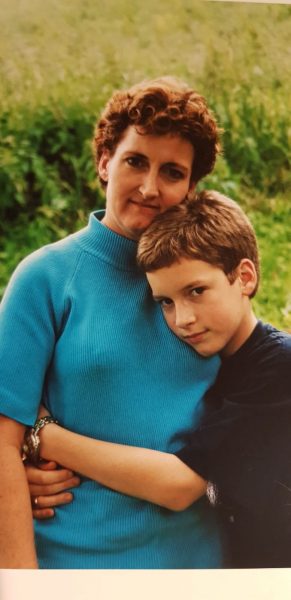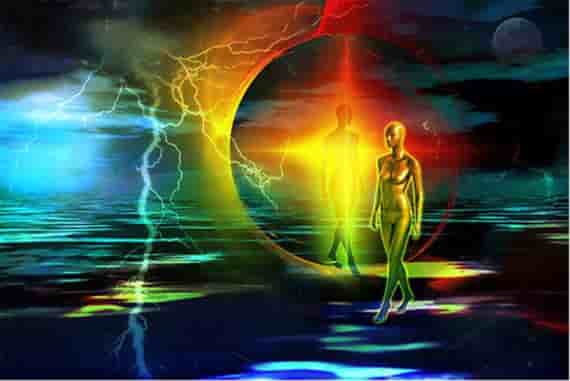I thought I’d jump ahead to share a snippet of at least one of the questions for the upcoming book along, of course, with Erik’s answers. I plan to post another Ask Erik question that’s ready in my drafts folder, but I’m waiting for confirmation and permission from the person who submitted it. Hang on for the thrilling ride through the death experience, as narrated by our tour guide extraordinaire, Erik. There will be much more about death, so this is only a small part of what’s to come on the subject.
Channeling Transcript
Jamie: Yesterday I was doing a reading for a woman and I kept smelling fish. I mean like fish, stinky old fish.
Me: Ewww!! Old fish? That’s the worst!
Jamie: And I kept stopping the reading and looking at the woman like, you know, do you have anything related to fish? I couldn’t really figure it out at all! I still couldn’t figure it out when she left!
Me: Uh, huh.
Jamie: Well, you know who the Mr. Stinky Pants was that was doing that?
Me (laughing): Oh, I can only guess.
Jamie: It didn’t even dawn on me. It didn’t even cross my mind.
Me: He’s very playful. I mean, I don’t know if you read the blog and have seen the entry about Jason and Robert, but he’s with them a lot, like white on rice, and he teases them, does pranks on them. They channel really well, so they can have full on conversations with Erik.
Jamie: Oh, my goodness! He’s busy! And he’s here and wide awake.
Me: Oh, boy! Hi Erik!
Jamie giggles.
Jamie: He says, “Hi Mom.”
Me: Okay, Erik, now I’m going to start asking more questions for the book. We want the insiders guide to the Afterlife, etc., so first I want to ask you what you’d like to share about death? What do you want to say about it for the book?
Jamie (chuckling): He’s kind of rubbing his chin.
Erik: Can we come up with another word than death?
Me: Transition? I don’t know! You tell me! You’re the expert!
Erik: Death is just like birth. We “birth in” to this amazing world, then we “birth in” to another world.
Me: Okay. Which is more difficult?
Erik: Oh, God, birthing in to the human form.
Me: Can you elaborate, give us some details? What do the readers need to hear?
Erik: It’s kinda like milking a cow.
Me: Uh, huh. So what about transitioning to where you are now, Erik?
Jamie: He takes a deep breath.
Erik: Going Home. Well, because of you, I’ve had a lot of interactions with other spirits who talked about death. Their death. Their transition.
Me: Um hm.
Erik: It’s all very different, I really believe…
Jamie: He’s pausing to think, and his eyes are scrunched.
Erik: …the mechanisms of—no, no, scratch that! Mom, it’s like this: Everyone has such a different experience, and I really think God did it that way so that we can only learn and experience what we’re capable of dealing with. Most of the time, when I talk to spirits, even if they were in an immense amount of pain when they died, they don’t really recall it as vividly as you recall painful things as a human. There’s just not a big emotional attachment to it.
Me: Wow, interesting!
Erik: Yeah, but most of the time, death is painless, unless the spirit wanted to experience a painful death in order to grow.
Me: Yes, I remember you mentioning that before.
Erik: Something else about pain during and after transition: Pain is related to the physical body, and we’re not in it anymore. We don’t have those body memories. Those old scars, those old pains and strains are gone. We’re set free from them. We have that pain when we’re in the body, but as soon as we’re released…
Jamie: He’s giving me this really funny image of like, um, a horse race when the gate is open.
Me: Uh huh.
Jamie: And the horse just dashes out like, “Oh yay! Get me outta here!”
Jamie and I both laugh.
Erik: Yeah. That’s when we really begin to run the race. Everything is faster and freer. Less limiting and cramped.
Me: Okay. Now a lot of people who have had NDEs talk about going toward a light, going through a tunnel. I know you said everyone has a different experience, but are their some things that are constant?
Erik: It’s based on their belief system. What I find most profound is children who die, and so they really don’t have a belief system yet. They don’t have that training or indoctrination yet. They cross over to here and.
Jamie: Oops, now he’s changing topic.
Erik: You know, I was talking the other day to somebody. St. Jonathon.
Jamie: Is there a Saint Jonathan?
Me: Heck if I know!
Erik: So I was talking to him about…
Jamie (giggling): Slow down, Erik! Take a breath.
Me: He can talk a mile a minute, that boy!
(There’s ause while Jamie catches up with Erik, then she paraphrases what he says.)
Jamie: He was talking to this other gentleman about the structures of the brain. And he says there’s been a lot of research about when the brain dies, there’s two minutes after as the cells die and there is no oxygen, there’s an image perceived as a light, and it has this tunnel effect.
Me: Um, hm.
Jamie: And he says you can read all these articles of scientists claiming that’s exactly what the tunnel effect is.
Erik: Well, I gotta give it some credit. Not all though.
Jamie: He’s shaking his head like he’s saying, “Oh, no way, not all!”
Erik: But I do think this is the way our bodies work to comfort us. I’ve been told that God designed our bodies this way, because it is the natural progression of death of body and of spirit.
Me: Okay.
Erik: Why wouldn’t our brains begin to start us off on this new journey while it dies? It just makes so much friggin sense to me.
Jamie: I’ve never thought about that ever before!
Me: Interesting. I’ve read the research you’re talking about Erik. It has to do with the lack of oxygen to the occipital lobe of the brain. Okay, now, go back to children. Tell me how their death is.
Erik: Get this: Children with no belief system—what do you think they report when they have NDEs?
Me: I don’t know; I give up.
Erik: The purest of pure things. They see the Light. They go into the Light, and in this Light, they see people. Mom, they’re so little, they don’t know that it’s, you know, Grandpa Joe or Great Grandma Suzy. But the child knows these people LOVE them. They have an experience like that.
(Long pause followed by Jamie laughing.)
Jamie (still giggling): Okay. You gotta go back, Erik. Back up a little for me. He’s talking about people who believe they’ve had NDEs, but when they die and come back, they talk about a council of white robed people and…
Me: Oh, yeah, yeah.
Jamie:…people with Roman togas and wraps and, you know, streets lined with gold.
Erik: Mom, I know that’s in our belief system, but that’s exactly what it is. It’s a man creating a story, passing it down. Most humans like to idolize the Greeks and Romans.
Me: Oh, yeah. Okay.
Erik: And that the togas have status, the monks are very connected with God. So we imagine that our spirit guides dress like monks or leaders of that era.
Me: So, do we create that design, or do they create it for us so that we’ll be more comfortable and better oriented when we pass over?
Erik: Oh, no, we create that for ourselves. Our beliefs are the strongest chain link fence that we have around us. It can keep things in, and it can keep things out.
Me: What about skeptics or atheists who don’t believe in an afterlife? What happens when they die?
Jamie (laughing): He’s got this “cat who ate the canary” smile.
Me: Oh my gosh, I can just see it right now in my mind!
Erik: Well, they want to go into nothingness, or at least that’s what they believe will happen. So…they do! And then…they have a thought, and they realize they’re having a thought. And that curiosity right there sparks them into exploring the space they’re actually in. When they begin to do that, they transition into Home.
Me: What happens if they don’t explore? Do they float around in nothingness for all eternity?
Erik: There are spirits who come to rescue them and orient them, but they have to wait until the person’s energy vibration opens up, gets higher.
Me: What about people who believe in Hell and think they belong there?
Erik: Then they have no opportunity to see the Light and cross over.
Jamie: He puts his hand down on his knee and says, “That’s it, they’re going to Hell.”
Erik: They have to wait until their vibration goes up. Eventually, it does. It always does.Really, Hell is just the separation from God, from the Light. Mom, as we, who believe in God or The Source, we know that it’s in everything. So how can you ever be separate from God?
Jamie (laughing): I love his mannerisms!
Me: I know! He has a lot of funny ones!
Jamie (still laughing): When he gets deep and is thinking, boy, his body really moves into it!
Erik: Mom, it doesn’t make sense! God is omnipresent, so Hell can’t exist. If God is everything, every being, every universe, every dimension, how can Hell exist? It’s impossible.
Me: So what do people do when they think they should be in Hell? Do they imagine Hell and create their own personal reality of Hell?
Erik: Well, what I’ve seen happen…
Jamie: He sits back now.
Erik: Let’s take the Baptists for example.
Me: Oh, boy! I know they have very strong beliefs!
Erik: Oh, yeah! You know they believe they have to go through Hell before they reach God. They believe they have to face their demons, the evil that resides inside of them, to purify themselves.
Me: Oh, wow!
Erik: So people with those strong beliefs, they don’t feel the Light right away. They see their fear, the fear of mankind, all of the lower energy. And they fight. They have that struggle, then they get into the Light, and they feel they’ve survived. Is it necessary? No. But that’s their beliefs. That’s exactly the crap they’ll give themselves.
Me: So in your case, Erik, it wasn’t a big surprise, when you died, that you experienced what you experienced, because your belief system was kind of our belief system, a more spiritual one, not one of organized religions. Did this make your transition a bit easier?
Erik: Hell, yes. I have to thank you for that!
Me (teasing him with a strong New Yorker accent): Sure, don’t mention it.
Erik: I think it’s so weird that people can be so careless and carefree with their lives, because they think death will rescue them or when they die, God will forgive them. Little do they know their afterlife is based on the beliefs they create while they’re alive.
Me: Wow! Their whole afterlife, really?
Erik: Yes, cuz if they believe that this is all they get, then their perspective is going to be so narrow so then that that’s all they will get. It’s the same in life. Haven’t you realized?
Jamie (giggling): Beans, Erik? (pause) Alright. He says maybe you’ve never tried bean, and then at age 30 you try beans. Then all of a sudden that’s all you can see everywhere, beans, beans, beans. That’s because you’re more open to it.
Me (chuckling): Well if they’re green beans, you’ve probably never tried them, Erik!
Erik (laughing): That’s not true! You made me take some bites!
Me: Well, that’s true. You got me there. So that’s really interesting. I remember every time I was pregnant, it seemed like every other woman around me was too. So, what you’re saying is that the beliefs you have all throughout your life set the foundation for what your death and afterlife experience is?
Erik: Yes. And the chance of evolution and self-growth is much more vast over here, because everything happens more quickly. Thought creates reality instantaneously.
Naturally, my questions seemed to generate hundreds more, but all will be answered in due time. I hope you enjoy our journey together.



